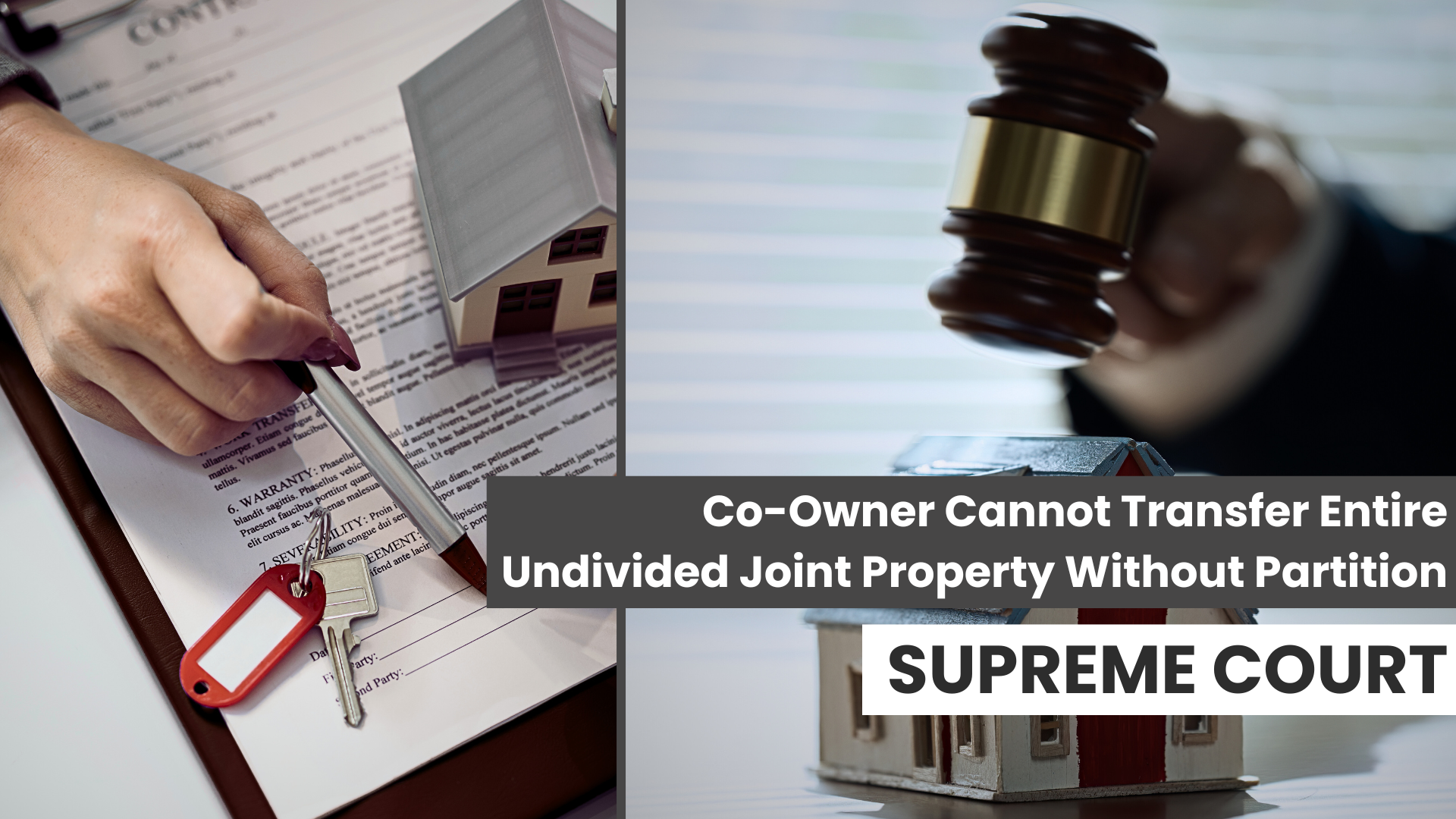
The Supreme Court while hearing a matter related to the transfer of a property ruled that a co-owner cannot sell the entire undivided property without first figuring out each co-owners portion under Section 44 of the Transfer of Property Act, 1882. It states that “When one of two or more co-owners of immovable property legally transfers his share, the transferee acquires the transferor’s rights but cannot demand partition unless there is consent or judicial determination of the shares.”
The factual situation revolves around two brothers, Salik Ram and Sita Ram, who previously held the property jointly, according to the ruling. The property passed to each of their heirs upon their deaths. Crucially, the Court stated that notwithstanding the appellant's assertions to the contrary, there was no official documentation demonstrating that Salik Ram had ever given his portion to his brother Sita Ram.
As a result, the land continued to be jointly owned by the brothers' legal successors. The main legal concern was whether Brij Mohan, the Sita Ram heir, could lawfully sell Sk. Golam Lalchand the whole property without the heirs of Salik Ram's approval or involvement. Section 44 of The Transfer of Property Act, 1882, which regulates co-owners' rights to sell their portion of joint property, was a major source of legislation for the Court in resolving this case. The right to sell the entire undivided property is not extended by this clause, but it does permit the sale of a co-owner's portion.
The respondent, a co-owner, disputed the transaction, arguing that the sale was void without the approval of other co-owners, who held vested interests in the property. The Court upheld the respondent’s argument, stating that Brij Mohan could only transfer his undivided share, not the entire property.
The rulings of the First Appellate Court and the High Court were upheld by the Supreme Court, which denied the appeal. The ruling emphasizes that in a joint ownership situation, no co-owner may assign more than their undivided share absent permission or a formal separation. Citing its previous rulings, the Court restated: “In the absence of any valid partition, the property remains joint and undivided. No co-owner may transfer the full property; each co-owner is only entitled to their portion.
In conclusion, the Court upheld the respondent and other co-owners' legal rights by ruling that the appellant's appeal lacked substance and by confirming that the sale document in question did not grant rights over the entire property. The ruling has imperative implications for Indian property law, especially when it comes to joint ownership and co-owner transactions.
SK. GOLAM LALCHAND VERSUS NANDU LAL SHAW @ NAND LAL KESHRI @ NANDU LAL BAYES & ORS., CIVIL APPEAL NO.4177 OF 2024

